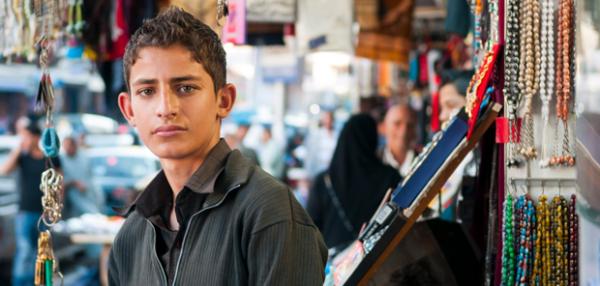Approximately 1 billion people live in the world’s second-largest continent. Only Asia has more people but Africa now has the fastest growing population. If current trends continue, the number of Africans will rise to 1.4 billion in 2025 and to 1.9 billion in 2050. A third of the babies born in the world will be African. Already, 61% of Africa’s population is 24 and under, making it the youngest in the world.
Young women find it harder than their male counterparts to find a job. Underemployment is rife, especially in the agricultural sector. Many businesses report that they have to import managerial and technical talent from abroad to run their operations. The simple explanation for this phenomenon is that Africans lack skills because they are victims of terrible education systems. The continent’s military expenditure still exceeds that on education or agriculture.
Why is Youth Employment in Africa Relevant?
Youth unemployment often fuels political violence, social tensions and civil unrest. A World Bank survey in 2011 found that 40% of those who join rebel movements in Africa are motivated by the desire of finding a job. Clearly, youth employment is the biggest challenge facing the continent.
Now that we have identified the challenge, two questions follow. First, how can we create jobs? Second, who is responsible for creating jobs?
There are five key ways to create jobs in Africa. First, a vigorous private sector is essential for the creation of jobs in the continent. Second, infrastructure is critical for jobs. Electricity is a magical thing and allows people the chance to do new things. Roads allow people to get around and take their crops or manufactures to markets. Railways move larger numbers of people and bigger quantities of goods more efficiently, while ports allow products to reach overseas markets. Infrastructure creates a massive multiplier effect for the economy and for employment. Third, both private sector and infrastructure require capital to develop. Therefore, finding new ways to finance ideas and projects is essential. Fourth, better governance leads to more jobs. If corruption is curbed and skills improved, there will inevitably be more jobs for everyone, particularly the youth. Fifth, social mores and cultural norms have to change. If innovation, hope and self-reliance replace inertia, despair and dependency, jobs would increase dramatically. So far, most people have looked to government jobs for security and perks. As the younger generation grows up in an era of mobile phones, exposure to the wider world and M-PESA, new ways of thinking are emerging. These have promise and need support.
The greatest responsibility rests with African governments. These governments have to take a leaf out of China’s book and build power plants, electricity grids, roads, railways and ports.
Already, Africa is increasingly entrepreneurial. The private sector is highly dynamic and it is the responsibility of governments to set it free. They need to get rid of colonial-era red tape that is destroying the continent, and instead make it easy for businesses to operate. Sensible budgets and stable monetary policies are essential. Investment in education, along with overdue reforms in curriculum and training, will boost the private sector by improving the capabilities of the population.
The greatest responsibility rests with African governments. These governments have to take a leaf out of China’s book and build power plants, electricity grids, roads, railways and ports. They have to connect key markets and trading routes, disregarding artificial borders. Kenya, Rwanda, Burundi and Tanzania have recently formed the East African Community (EAC) and agrred upon a monetary union. More importantly, they have a regional plan to build new ports and railways that includes a $13.8 billion Chinese-built railway.
This is a blueprint for more countries to follow. However, foreign partners, including colonial nations such as France and new players such as China, can help. International organizations such as the World Bank have a role to play too.
Africa has a tremendous shortage of capital. Yet it has enormous opportunities. Tony Elumelu makes a good case for long-term investment as a means of creating economic prosperity, jobs and social wealth. Here, investors in Asia, Europe and the US can help. Already, China is investing a great deal in various projects in the continent. Western pension funds and corporations could do well to show the imagination to invest in Africa, as could angel investors. Microfinance is a big part of the package.
Africa needs better governance. Europeans divided Africa into arbitrary states, rapaciously robbed the continent and imposed a centralized administration, creating a form of government that was divorced from the people. After independence, African strongmen used this colonial structure of government for coercion and patronage. Now, African political leaders, its intellectuals, civic organizations and the people themselves have to end the divorce between the government and the people.
Finally, civil society and organizations involved in Africa, both national and international, have to work on developing a new spirit in the continent. Too often, Western organizations impose their systems on Africa with disastrous effect. There is more than an element of truth in the adage that aid is band-aid. Instead, what Africa needs is self-reliance and entrepreneurship. Already, small businesses, social enterprises and nonprofit organizations in places like Kenya represent a new energy sweeping through the continent. Africa needs a new generation that takes inspiration from Chinua Achebe and Nelson Mandela to provide a new vision for the continent.
This article was originally published on Fair Observer.
Image source: www.eudevdays.eu






Be the first to comment on "Whose Job Is Youth Employment in Africa?"